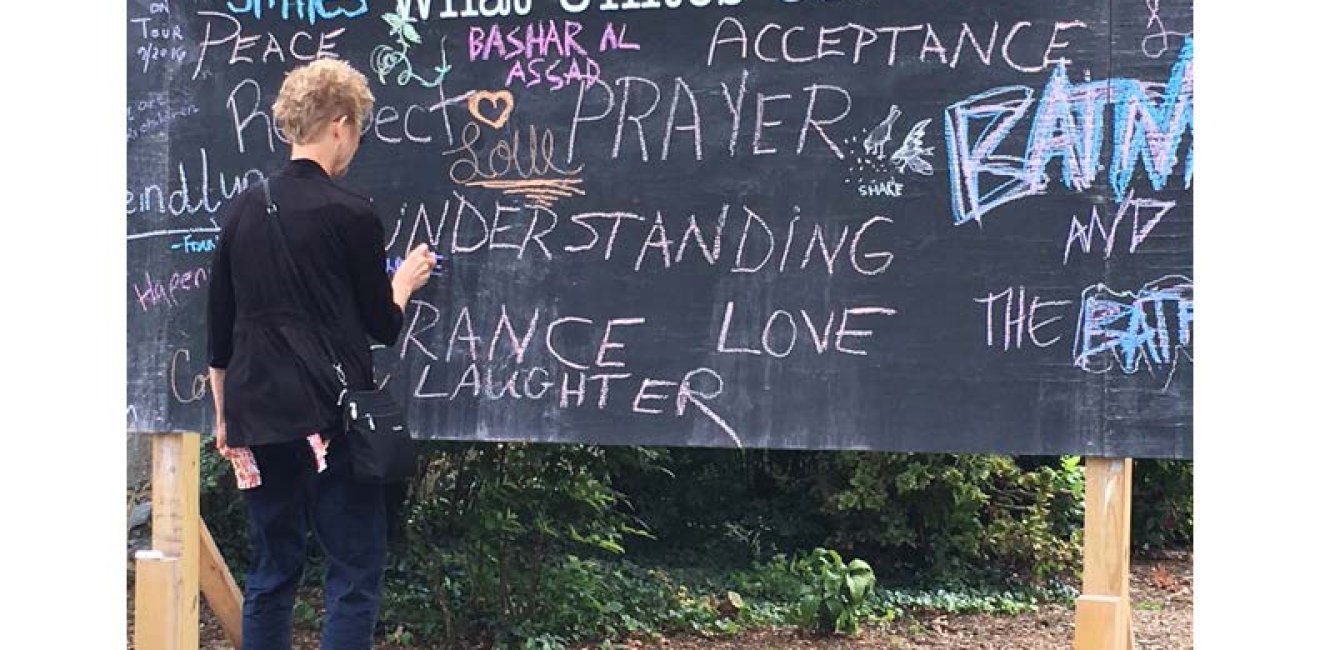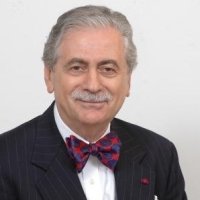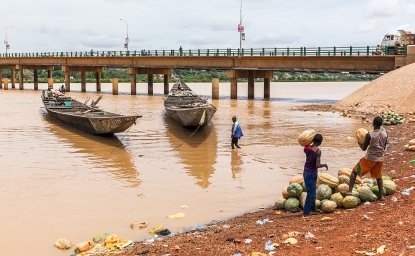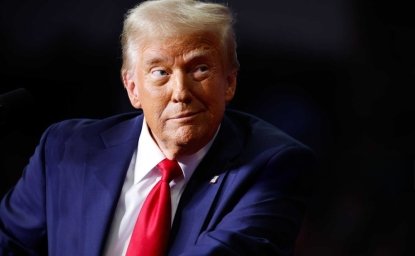21st Century Health, Education, Development, and Global Security
We urgently need Euro-Atlantic and global political will as was demonstrated in the rebuilding of post-World War II Europe to address today's multiple threats and challenges.
We urgently need Euro-Atlantic and global political will as was demonstrated in the rebuilding of post-World War II Europe to address today's multiple threats and challenges.

Health and education are essential for sustainable development across low-, middle-, and high-income economies. Health, education, and development in a well-integrated cluster are the sine qua non building blocks of global security.
Huge economic, health, and educational disparities abound among nations. These are accompanied by poverty that is catalytic to the seeds of disaffection, exclusion, and anger, and decreasing the threshold for violent, antisocial behavior globally.
The World Bank initiatives on (i) the role of education as one of the tools of poverty eradication, and (ii) the role of nutrition in brain development are commendable. These noteworthy initiatives must be accompanied by similar projects focusing on closing the health gap, a challenge well documented by Sir Michael Marmot, the President of the World Medical Association, in his most recent book, The Health Gap. The health gap, regrettably prevails in the world, decreases life expectancy, the quality of life, and undermines the countries' economies. The educational gap affecting girls mostly in low-income countries, has been well documented by both UNICEF and UNESCO. As a result of it there are dire consequences for the girls affected but also affecting the countries’ economies.
In the coming year we will be celebrating the 70th anniversary of the Marshall Plan, possibly the finest American diplomacy accomplishment of all time. The Plan helped bring a devastated Europe back to its feet across economic, political, health, and education spectra. The Plan also set in motion the subsequent birth of multiple European institutions such as the European Union, the Organization for Economic Cooperation and Development, the North Atlantic Treaty Organization, and many others. The Plan and the subsequent European institutions to emerge from it were catalytic in contributing to the emergence of a Europe that was united, prosperous, and at peace.
[[{"fid":"68521","view_mode":"default","fields":{"field_file_image_alt_text[und][0][value]":"Remembrance of 9/11: Photo by Eliot Sorel MD, 9/11 2016","field_file_image_title_text[und][0][value]":"Remembrance of 9/11","field_file_source[und][0][value]":"Photo by Eliot Sorel MD, 9/11 2016","field_file_caption[und][0][value]":"Remembrance of 9/11"},"type":"media","attributes":{"alt":"Remembrance of 9/11: Photo by Eliot Sorel MD, 9/11 2016","title":"Remembrance of 9/11","height":"1080","width":"1920","class":"media-element file-default"}}]]
Now, in the 21st century, on 15th anniversary of 9/11, we are confronted with multiple threats, challenges, extraordinary accomplishments, and complex paradoxes.
There are unimaginably brilliant and abundant scientific discoveries that only a few decades ago were in the realm of science fiction such as those regarding the brain and the neurosciences; the connectome and the microbiome; the human genome; information technology, artificial intelligence, nanotechnology; among others, and the complex prospects of their integration and the consequent enhancement of longevity and quality of life.
Concurrently we are confronted by vexing global disparities in health, education, and development; rapid climate change endangering planet earth and human survival; multiple unresolved conflicts, war, and terrorism affecting all generations across the life cycle; and, a widening gap between the haves and the have-nots across low-, middle-, and high-income economies.
We urgently need a similar, Euro-Atlantic and global political will as was demonstrated in the rebuilding of post-World War II Europe.
The global community of nations, in partnership with the private sectors, must together design and allocate the necessary human, financial, and innovative technical resources in response to these challenges and threats. It must harness the opportunities of new discoveries, innovations and execute a comprehensive, well integrated global initiative a la Marshall Plan focusing on health, education and development to enhance life, wellbeing and global security for all nations, across the life cycle and across economies.
The opinions expressed here are solely those of the author.


The Global Europe Program is focused on Europe’s capabilities, and how it engages on critical global issues. We investigate European approaches to critical global issues. We examine Europe’s relations with Russia and Eurasia, China and the Indo-Pacific, the Middle East and Africa. Our initiatives include “Ukraine in Europe”—an examination of what it will take to make Ukraine’s European future a reality. But we also examine the role of NATO, the European Union and the OSCE, Europe’s energy security, transatlantic trade disputes, and challenges to democracy. The Global Europe Program’s staff, scholars-in-residence, and Global Fellows participate in seminars, policy study groups, and international conferences to provide analytical recommendations to policy makers and the media. Read more



